The Nightmare Men: “The Diehard”
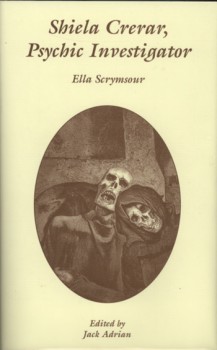 Shiela Crerar, psychic investigator and adventuress, first burst into public view in the pages of The Blue Magazine in 1920 with “The Eyes of Doom”. The obscure creation of the intriguingly enigmatic Ella Scrymsour, Crerar battled ghosts, werewolves and gibbering ghouls of all types from May of 1920 to October of that same year, appearing in a grand total of six stories which vanished into the literary ether when The Blue Magazine folded not long after. Luckily for aficionados of occult sleuths, Ash Tree Press released a lovely collection in 2006, marking the first time these stories were collected or reprinted in any form.
Shiela Crerar, psychic investigator and adventuress, first burst into public view in the pages of The Blue Magazine in 1920 with “The Eyes of Doom”. The obscure creation of the intriguingly enigmatic Ella Scrymsour, Crerar battled ghosts, werewolves and gibbering ghouls of all types from May of 1920 to October of that same year, appearing in a grand total of six stories which vanished into the literary ether when The Blue Magazine folded not long after. Luckily for aficionados of occult sleuths, Ash Tree Press released a lovely collection in 2006, marking the first time these stories were collected or reprinted in any form.
Beginning with the aforementioned “The Eyes of Doom”, in which Crerar confronted the eponymous vengeful spirit, the series progressed with “The Death Vapour”, “The Room of Fear”, “The Phantom Isle”, “The Werewolf of Rannoch”, and “The Wraith of Fergus McGinty”. Unlike her masculine counterparts in the occult detective business, Crerar is a two-fisted phantom fighter, wading into supernatural situations with little more than guts, brains and a distinct lack of fear bolstered by harsh economic necessity. Not for her the remote recordings of Dr. Hesselius or the psychical solutions of John Silence. Instead she pounced willy-nilly on lycanthropes and luminescent manifestations, sinking her teeth into matters both mundane and malevolent with equal determination.
Say hello to Shiela Crerar, the Scottish terrier of the psychic set.
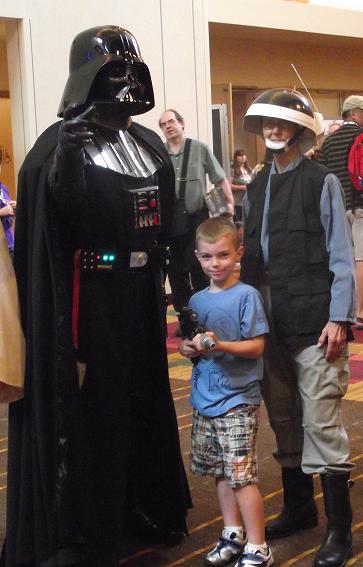 The force is strong with this one, it seems. Yes, that’s my beloved son, taking his first steps toward a larger, more gamer-filled world, as he becomes a temporary apprentice to Lord Vader. (Don’t ask me why the Rebel Alliance officer is standing near them. It just doesn’t fit continuity!)
The force is strong with this one, it seems. Yes, that’s my beloved son, taking his first steps toward a larger, more gamer-filled world, as he becomes a temporary apprentice to Lord Vader. (Don’t ask me why the Rebel Alliance officer is standing near them. It just doesn’t fit continuity!)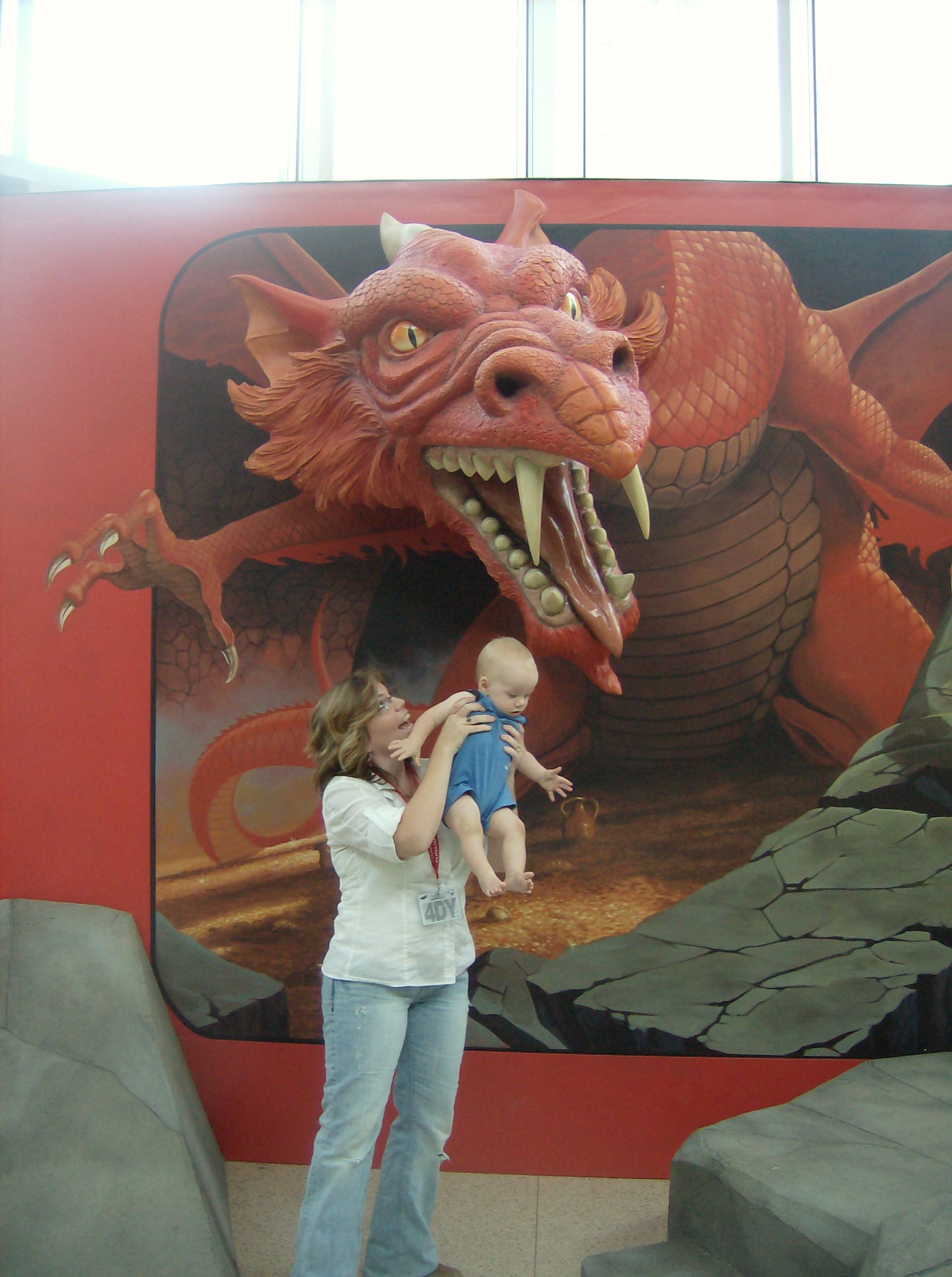
 One of my favourite Marvel Comics characters, certainly my favourite of all their big names, is Doctor Strange. Like most established Marvel characters, he’s been handled a lot of different ways over the course of time. I’d like to look back, and look closely, at one of the early tales that defined him most clearly — specifically, his origin story.
One of my favourite Marvel Comics characters, certainly my favourite of all their big names, is Doctor Strange. Like most established Marvel characters, he’s been handled a lot of different ways over the course of time. I’d like to look back, and look closely, at one of the early tales that defined him most clearly — specifically, his origin story. Scott Westerfeld has posted on his blog
Scott Westerfeld has posted on his blog 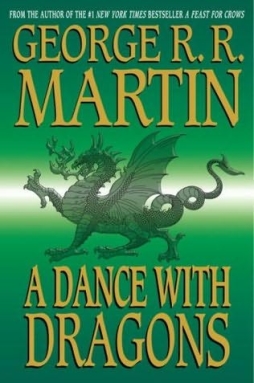 I recently
I recently 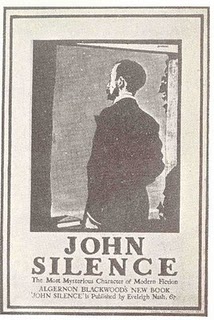
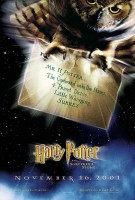 I remember walking through a movie theater and seeing a teaser poster for the first Harry Potter film. It showed an owl carrying a card addressed to Harry, in the cupboard under the stairs. There it is, to the right.
I remember walking through a movie theater and seeing a teaser poster for the first Harry Potter film. It showed an owl carrying a card addressed to Harry, in the cupboard under the stairs. There it is, to the right.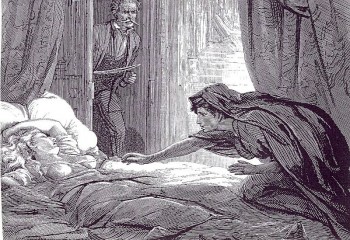 It’s always best to begin at the start, to quote no one in particular. We’ll start with the introductions: my name is Josh Reynolds and I wanted to be a detective when I grew up…no, not just a detective.
It’s always best to begin at the start, to quote no one in particular. We’ll start with the introductions: my name is Josh Reynolds and I wanted to be a detective when I grew up…no, not just a detective. Serial storytelling is something of a mystery; even more so, perhaps, than most storytelling. When done right, it seems to hook an audience, to get them to invest heavily in the story being serialised. But for whatever reason, most serial forms have been pigeonholed as strictly popular arts; serial storytellers have generally been assumed to have a low amount of literary ambition. These presumptions about serials, and the way the form works, have always intrigued me — the more so since I’ve set out to write
Serial storytelling is something of a mystery; even more so, perhaps, than most storytelling. When done right, it seems to hook an audience, to get them to invest heavily in the story being serialised. But for whatever reason, most serial forms have been pigeonholed as strictly popular arts; serial storytellers have generally been assumed to have a low amount of literary ambition. These presumptions about serials, and the way the form works, have always intrigued me — the more so since I’ve set out to write